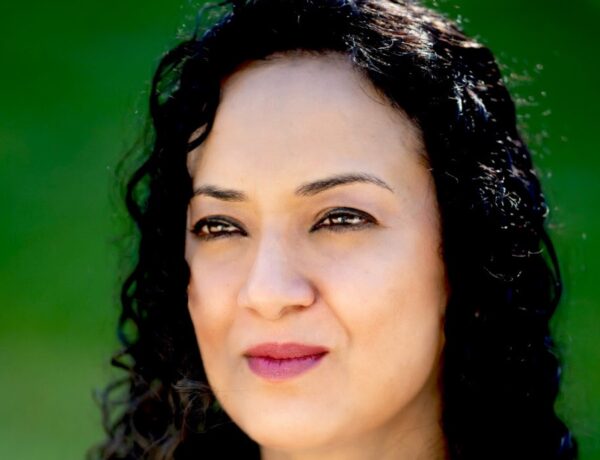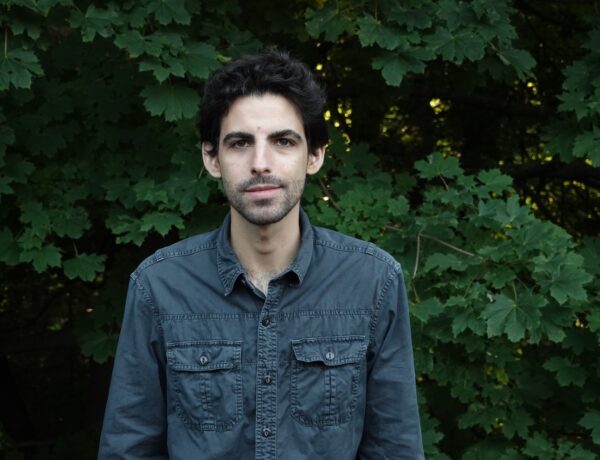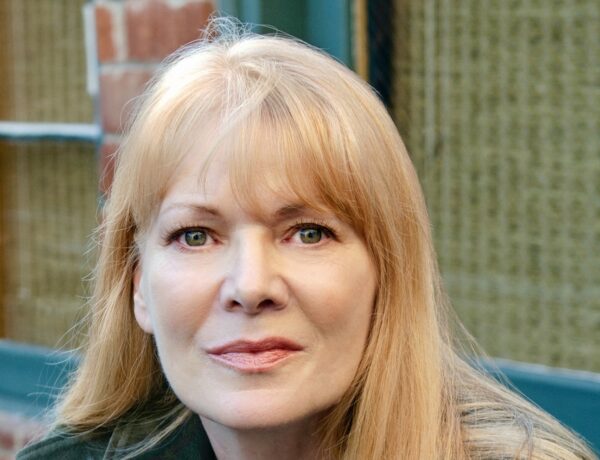Philippa East grew up in Scotland and originally studied Psychology and Philosophy at the University of Oxford. After graduating, she moved to London to train as a Clinical Psychologist and worked in NHS mental health services for over ten years.
Philippa now lives in the Lincolnshire countryside with her husband and cat. Her first novel Little White Lies was published in 2020 and was shortlisted for the CWA John Creasey New Blood Dagger. Safe and Sound is her second novel.
Each week, we publish a new daily writing routine from a famous author. Subscribe to our newsletter so you don’t miss out!
Hi Philippa, great to have you on Famous Writing Routines. We’re really excited to talk to you about your writing routine and process. For those who may not know, can you please tell us a little bit about yourself?
Hello everyone! I’m an author of psychological suspense novels, published with HQ/HarperCollins. I write about families, relationships, marriages and friendships, through the lens of the darker sides of the human experience.
My debut Little White Lies was shortlisted for the CWA “New Blood” Dagger, and I have since published two further novels: Safe And Sound and I’ll Never Tell, both of which are available now.
In my day job, I work as a Clinical Psychologist and this continues to have a big influence on my writing. I live in Lincolnshire with my spouse (who is a musician) and our cat called Mimi.
Do you remember the moment you realised you wanted to become a writer?
Yes! Over the years, I have dabbled with lots of different creative pursuits, from pottery to music, photography to dance, but none of them really “took” for me (and lots of them I was pretty bad at). When I was about 30, I changed jobs within the NHS and had about a week off from work, with no clinical worries to occupy my mind. I got the first line for a novel in my head, and decided to write the whole thing (as you do).
The novel was / is terrible, but I loved the process of writing it. I had been an avid reader all my life, so looking back it now seems obvious that writing would become my “thing”. Later, when I started getting short stories published, it made me realise that maybe I could do this “for real”.
Can you take us through the creative process behind your book, Little White Lies?
Well, first up, I’ll say it was messy! I got the idea for the book in the wake of the Gone Girl craze. At that time, there were lots of psychological thrillers about people / children / women going missing.
However, I couldn’t stop wondering what might happen within a family – particularly a family where there were lies and secrets – if a missing child was found alive and came home, and the story started there. When I left my full-time job in the NHS in 2015 and set up my own part-time private practice, I decided to use the extra time to turn that “what if?” into an actual book.
I’d been writing and publishing short stories for a number of years by then, but to be honest I still didn’t know how to tackle a full-length novel. In the end, I just sat down and wrote 1,000 words a day for three months. By the end of that I had 80,000 words of mess!
I spent the next year or so trying to tidy it into a proper story, with the help of a mentorship scheme via Writing East Midlands. In 2016, I submitted to agents, and one particular agent took an interest. (The manuscript was about draft 12 by this point.)
The agent said the book had real potential but basically needed a page-one rewrite. She suggested that I tell the story from two separate POVs instead of just one, and also include a really big twist. These were huge editorial changes, but she was absolutely right.
I spent the next year tearing the MS apart and putting it back together again, alongside learning a lot more about the writing craft, which was really helpful. Eventually, after multiple failed attempts, I managed to make it work. In February 2018, I signed with that same agent (Sarah Hornsley) and – after yet more editing! – the book sold at auction to HQ/HarperCollins that November.

What does a typical writing day look like for you?
My routine definitely depends on whether I am planning, writing, or editing. If I am planning a book, as I am now, I will probably only do about an hour’s focused work per day. During this time, I will sit with my notebook and brainstorm ideas for my plot, characters, motivations, themes, etc.
There is only so much idea-generation I can do in one day, so this will be just a short burst. When I am writing the first draft of a book, I will usually write 2,000 words a day. I write very “quick and dirty”, and hardly edit at all as I go; I just try to power to the end.
Writing 2,000 words usually takes me about two hours. When I am editing, I can work for up to seven hours a day, because I am fine-tuning, rather than generating ideas or words from scratch. I usually like to do my active writing work in the morning, or early afternoon (I am useless late afternoon onwards).
I will usually spend the first part of the morning catching up on social media and promotional activities, and I love to read in the late afternoon. I often will also fall asleep and have a nap at that point! I usually also fit in a run or a swim too.
I work at the psychology practice two days a week, so I don’t do any writing on those days. The other five days a week will usually involve writing work, although I do try to have a day off per week when I can!
Do you have a target word count that you like to hit each day?
When I am writing a first draft, I always aim to write 2000 words a day. I write in a very “undisciplined“ manner to get the whole story down initially. I also just want to get to the end as soon as I can, so I aim for a pretty high word count! Because I write so loosely in the first draft, this would usually take me a couple of hours a day, and then I completely crash!
Whenever you hit a roadblock during a writing session, what are some of the methods you use to get back into the flow of things?
Making a cup of tea or going for a walk can be good short-term strategies. If the block is bigger, for me, that’s often because I am trying too hard to generate ideas or fix a manuscript problem. In that case, I will usually ban myself from thinking about it or writing for a few days.
That can feel scary to do, especially if I have a deadline. However, usually my brain then has space to relax and be creative rather than frightened, and ideas tend to come of their own accord. If necessary, I might get on the phone with one of my writing friends to help untangle the ideas I’m working on. Reading other author’s books will often spark new ideas or solutions for me too.
What does your writing workspace look like?
My spouse and I moved home in August 2019, and a big selling-point of our new house was that it has a little office tucked away from the rest of the rooms, up its own little flight of stairs. It is the perfect space for me to write in – personal and private (Virginia Woolfe would approve!).
I have a big desk, covered in notes, notebooks and “how to write” guides. The room also has a little sofa to lie down on when I need(!) and an armchair that my cat likes to curl up in. It has a little window that looks out onto our back garden. It can get a bit chilly in winter, so I often take a hot water bottle with me, but it really is a special place. Only my cat Mimi ever really goes in there, other than me.
Affiliate disclaimer: Some links on this website are affiliate links. We may earn a small commission if you make a purchase through these links, but only promote products we truly believe in. We disclose affiliate links and give honest reviews.



No Comments